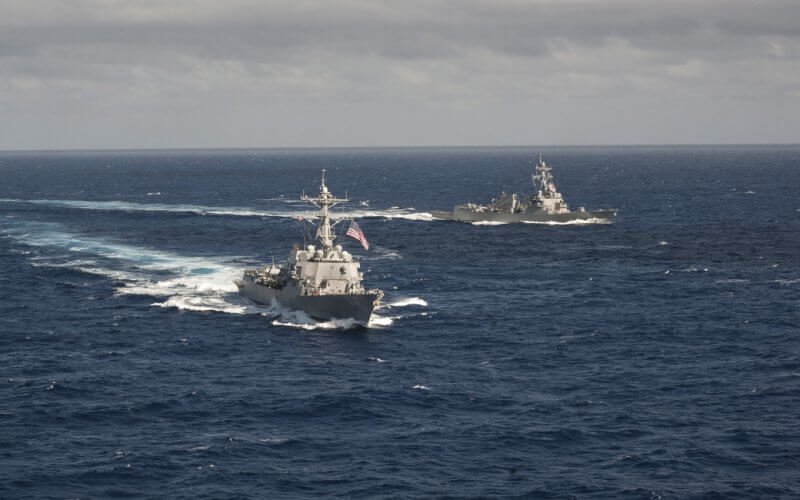During a televised address on Thursday, Abdul Malik al-Houthi, the leader of the Houthi terrorist group backed by the Islamic Republic of Iran, announced plans to unveil military "surprises" as part of their operations in the Red Sea.
"Our military operations will continue and advance, and we have surprises that our enemies will not expect at all," the Houthi leader said.
Houthi terrorists have frequently deployed drones and missiles to target ships involved in global commerce since mid-November. They claim their actions are in support of Hamas against Israel's military operations in Gaza.
"It's no surprise that the Houthis intend to escalate their Red Sea operations, as the Islamic Republic of Iran continues to offer critical support to the terrorist organization – including Islamic Revolutionary Guard Corps (IRGC) intelligence from the Behshad spy ship, UAVs, and ballistic missiles," said Jack Roush, a research associate at United Against Nuclear Iran (UANI) and a PhD candidate in International History at the London School of Economics and Political Science.
"Sustained Houthi attacks on civilian shipping pose a grave threat to United States national security, particularly because it demonstrates the IRGC's power projection capability," he added.
According to Ilan Berman, vice president of the American Foreign Policy Council, the latest threats made by the Houthi leadership to disrupt Red Sea shipping are "a pretty clear indicator that the group is not, in fact, deterred."
"That's a serious challenge to U.S. strategy because the Biden administration has been banking on limited, targeted strikes as being enough to change Houthi behavior and diminish the threat they pose to regional security and the global economy," he added.
On Tuesday, U.S. authorities reported that agents from Tehran and its Lebanese ally Hezbollah were actively involved in aiding the Houthis in Yemen, facilitating their assaults on global maritime routes. Speaking to a Senate subcommittee, U.S. special envoy for Yemen Tim Lenderking told lawmakers that the Islamic Republic was "equipping and facilitating" such attacks. "Credible public reports suggest a significant number of Iranian and Lebanese Hezbollah operatives are supporting Houthi attacks from inside Yemen," he added.
Lenderking admitted to Senators that the Iranian-backed terrorist group remains undeterred by American and British strikes. "The fact that they continue this and have said publicly that they will not stop until there's a ceasefire in Gaza, is an indication that we're not yet at the point, unfortunately, where they do intend to dial back," the U.S. special envoy for Yemen said.
Berman told The Foreign Desk that the latest threats made by the Houthi leadership also "rubs against the narrative that the White House is seeking to put out, and which the mainstream media has begun propagating, that American strategy in the Mideast is in good working order."
On Monday, the U.S. Central Command (CENTCOM) reported that the Rubymar, a vessel flagged in Belize, partially submerged near the Hanish Islands in the Red Sea. The incident occurred after the British-registered cargo ship was attacked by the Houthis on February 18 while traversing the Bab el-Mandeb Strait, linking the Red Sea with the Gulf of Aden.
"The IRGC remains emboldened by a lack of U.S. deterrence against their efforts to support the Houthis and other regional proxies. Therefore, to adequately prevent further attacks in the Red Sea, the U.S. must take action against the IRGC," Roush told The Foreign Desk.










